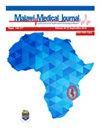Factors that influence ethical competence among nurses in health facilities in Malawi
IF 1.2
4区 医学
Q4 PUBLIC, ENVIRONMENTAL & OCCUPATIONAL HEALTH
引用次数: 1
Abstract
Background Clinical nurses' (CNs) ethical competence (EC) is essential for nursing practice because it facilitates high-quality care to patients. To develop ethically competent nurses, factors that positively affect EC must be explored and promoted. Few studies have explored ethical issues in Malawi and the aim of this study was to explore the factors that affect EC. Methods This study used a qualitative exploratory design to collect data through in-depth interviews from 10 key informants (KI) and 9 focus group discussions (FGD) in the selected government, CHAM and private hospitals in Malawi. It was conducted between April and May 2019. Data were analysed manually using thematic content analysis. The data were coded, and words with similar meaning were organized into categories from which themes and sub themes were developed. The themes and sub themes are reported as the results of the study. Results One major theme emerged from the thematic content analysis namely: systems influencing EC among nurses in Malawi. The study has identified continuing professional development in ethics, supportive supervision, availability of resources and leadership to be among the major factors that facilitate EC. Factors that hinder EC among the nurses included; inadequate supervision, inadequate resources, lack of teamwork, increased workload coupled with inadequate nursing staff. Conclusion This study has exposed the factors that influence EC in health facilities and shown that nurse leaders are key to enhancing EC through continuing ethics education, supportive supervision, staffing and provision of resources. Therefore, all the stakeholders in nursing should support the efforts to remove the factors that hinder EC in the health facilities.影响马拉维卫生机构护士道德能力的因素
背景临床护士的伦理能力(EC)对护理实践至关重要,因为它有助于为患者提供高质量的护理。为了培养有道德能力的护士,必须探索和推广对EC有积极影响的因素。很少有研究探讨马拉维的伦理问题,本研究的目的是探讨影响EC的因素。方法本研究采用定性探索性设计,通过对马拉维选定的政府、CHAM和私立医院的10名关键信息提供者(KI)和9个焦点小组讨论(FGD)的深入访谈收集数据。它在2019年4月至5月期间进行。使用专题内容分析对数据进行了人工分析。数据被编码,具有相似含义的单词被组织成主题和子主题的类别。专题和分专题报告为研究结果。结果从主题内容分析中得出一个主要主题,即:影响马拉维护士EC的系统。该研究确定,在伦理、支持性监督、资源可用性和领导力方面的持续专业发展是促进EC的主要因素。阻碍护士EC的因素包括;监督不足、资源不足、缺乏团队合作、工作量增加以及护理人员不足。结论本研究揭示了影响卫生机构EC的因素,并表明护士领导是通过持续道德教育、支持性监督、人员配备和资源提供来提高EC的关键。因此,护理的所有利益相关者都应该支持消除卫生设施中阻碍EC的因素。
本文章由计算机程序翻译,如有差异,请以英文原文为准。
求助全文
约1分钟内获得全文
求助全文
来源期刊

Malawi Medical Journal
Medicine-General Medicine
CiteScore
1.50
自引率
0.00%
发文量
27
审稿时长
>12 weeks
期刊介绍:
Driven and guided by the priorities articulated in the Malawi National Health Research Agenda, the Malawi Medical Journal publishes original research, short reports, case reports, viewpoints, insightful editorials and commentaries that are of high quality, informative and applicable to the Malawian and sub-Saharan Africa regions. Our particular interest is to publish evidence-based research that impacts and informs national health policies and medical practice in Malawi and the broader region.
Topics covered in the journal include, but are not limited to:
- Communicable diseases (HIV and AIDS, Malaria, TB, etc.)
- Non-communicable diseases (Cardiovascular diseases, cancer, diabetes, etc.)
- Sexual and Reproductive Health (Adolescent health, education, pregnancy and abortion, STDs and HIV and AIDS, etc.)
- Mental health
- Environmental health
- Nutrition
- Health systems and health policy (Leadership, ethics, and governance)
- Community systems strengthening research
- Injury, trauma, and surgical disorders
 求助内容:
求助内容: 应助结果提醒方式:
应助结果提醒方式:


